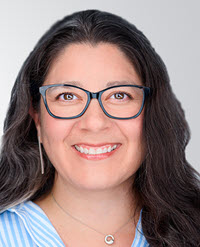Abstract
Excerpted From: Alice Setrini, Using Racial Justice Principles in Medical-Legal Partnership Design and Implementation, 51 Journal of Law, Medicine & Ethics 757 (Winter 2023) (34 Footnotes) (Full Document)
 The reality of longstanding racialhealthdisparities in the United States can no longer be ignored. The Black, Indigenous and other communities of color that are disproportionately impacted by poor social determinants of health continue to have worse health outcomes than their white counterparts. These multidimensional challenges require interdisciplinary solutions, and medical-legal partnerships (MLPs) are designed for just that purpose.
The reality of longstanding racialhealthdisparities in the United States can no longer be ignored. The Black, Indigenous and other communities of color that are disproportionately impacted by poor social determinants of health continue to have worse health outcomes than their white counterparts. These multidimensional challenges require interdisciplinary solutions, and medical-legal partnerships (MLPs) are designed for just that purpose.
The need, however, to explicitly center communities of color and their lived experiences in implementing health-promoting solutions is often overlooked in the design and function of traditional MLPs, an oversight that can lead to recreating and perpetuating many of the same structural barriers to health equity that exist within healthcare infrastructure generally. Including the core principles of racial justice advocacy as designed by the Shriver Center on Poverty Law's Racial Justice Institute (RJI) in the development and operation of MLPs not only improves the structure and function of these interdisciplinary partnerships, but also provides community-driven mechanisms for creating systemic change.
This paper first explores how understanding structural racialization, systems thinking, and implicit bias provides the vocabulary and foundational understanding for creating MLPs grounded in racial justice advocacy principles. It then describes how engagement in community lawyering, multi-form advocacy, intentional framing and communication, and internal organizational alignment, builds on that foundation for an MLP prepared to effectively address racialhealthdisparities.
[. . .]
Because MLPs are interdisciplinary by nature, they bring together a wide variety of stakeholders with diverse backgrounds and expertise. Best practices require MLP designers and practitioners to use a form of cultural translation to engage in effective communication regarding the improvement of health outcomes for the communities served. Legal advocates are generally well-versed in taking technical procedural legal language and simplifying it for non-legal audiences. providers also do this in the clinical or hospital context every day. Combining data on health outcomes with humanizing storytelling creates a powerful tool for MLP practitioners to engage in the types of multi-form advocacy described. By allowing patient-clients to tell their own stories in their own words, and to drive advocacy initiatives through a community asset-based framework that centers resilience and power, MLPs can serve as narrative-shifting mechanisms for communities of color. With so many stakeholders involved in creating a successful MLP, organizational alignment is vital to maximize effectiveness in addressing healthdisparities. This alignment requires clear communication of specific goals, with sufficient participation from individual stakeholders to maintain the mission's momentum. Selecting health and community partners and ensuring that a critical mass of internal MLP stakeholders stand behind the goals and strategies identified through systems thinking processes and community lawyering techniques are ways that organizational alignment manifests in MLP design.
Most of these concepts are not novel to current MLP practitioners and designers; they likely engage in many if not all of these core principles at some level already. However, a purposeful focus on race when applying these advocacy tools to MLP design and operation is necessary to move the needle on racialhealthdisparities. We need tools to help us better understand the complex systems that create healthdisparities, along with community driven solutions that meaningfully advance racial equity and justice rather than simply replicating familiar patterns and practices and hoping that this time, things will be different. When focusing on community through this racial advocacy framework, MLPs can be an effective part of the solution.
Alice Setrini, J.D., is a Clinical Teaching Fellow at the Health Justice Project at Loyola University Chicago School of Law.


